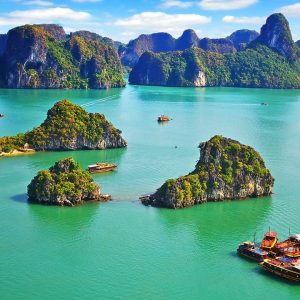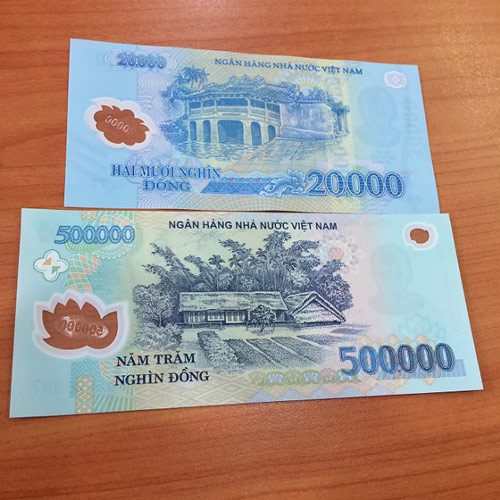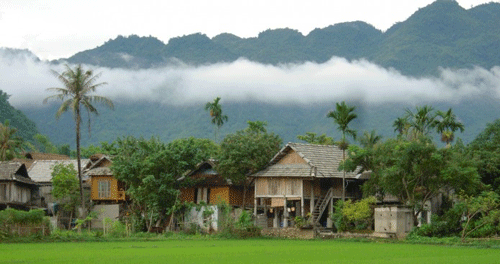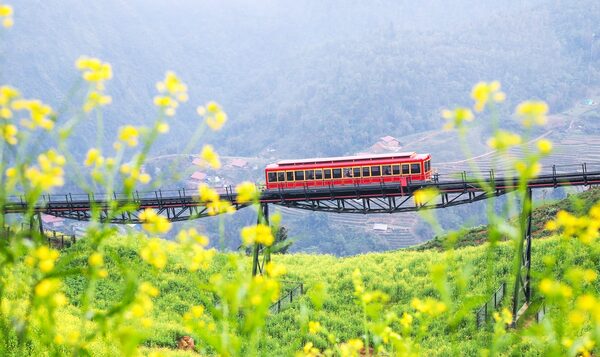Vietnam is one of the most exotic destinations in Indochina. With 4000 years of history, Vietnam has thousands of intriguing historic sites spread around the country, which express our diligence, creativity and national pride. As being colonized for a long period, Vietnamese cuisines and architecture are influenced by the Chinese, French and American, and yet still well-preserved our traditions and folklore. Vietnam is endowed with a coastline of more than 3000 kilometers and many other stunning natural landscapes across the S-shaped nation. Tourism is one of the key sectors in our country with many incentives from government to attract foreign investors and international travelers. Vietnam is famous for our people’s friendliness and hospitality. We have many hotels and resorts which are of international standards and can satisfy even the most difficult tourists. Here are some Vietnam travel tips and travel guides so that you can have a perfect trip to our country.
More important Vietnam travel tips:
- 8 Tips to Travel to Vietnam with Your Babies and Toddlers
- Essential Travel Guides for Family Trips with Kids to Vietnam
- Elderly, retired people travel to Vietnam
1. Visa and Passport
Ensure that your passport is still valid for six months from the date you travel to Vietnam.
There are 4 popular travel visa types: 1-month single entry, 1-month multiple entries, 3-month single entry, and 3-month multiple entries. Visa exemption is granted to these nationalities with certain date (updated January 2024):
- Within 14 days: Brunei and Myanmar
- Within 21 days: Philippines
- Within 30 days: Kyrgyzstan, Cambodia, Thailand, Malaysia, Singapore, Indonesia and Laos
- Within 45 days: Belarus, Denmark, Finland, France, Germany, Italy, Japan, Norway, Russia, South Korea, Spain, Sweden, United Kingdom
- Within 90 days: Chile, Panama
As visa regulation in Vietnam keeps changing, let Paradise Travel help you to fulfill all required information for Vietnam travel visa and you can enjoy your trip without any legal troubles.
2. Money
In Vietnam, only Vietnam Dong (VND) is accepted in any purchasing transactions. At some places like hotels, restaurants, souvenir stores, etc., travelers can use US Dollar to pay for the goods and services.
Currency and Vienam Dong exchange rates: (updated April 2025)
- USD $1 = VND 26,180
- £1 = VND 34,026
- EUR €1 = VND 29,626
You should not prepare VND before your Vietnam trip since the exchange rate in your country may not be favorable. You can exchange foreign currency in some Vietnamese banks at the airport and around big cities (Hanoi and Ho Chi Minh City). There are many reputable local banks in our country such as VietinBank, SacomBank, VietcomBank, Agribank, and Eximbank. You can also find some foreign banks such as ANZ, HSBC, Standard Charter, Shinhan Bank, and Public Bank. Avoid unofficial places such as souvenir or jewelry shops.
Check with your departure immigration gate for the amount one person can bring first then you need to report to the arrival immigration in Vietnam if you bring over US $5000 (per person).
ATMs can be found everywhere in big cities. The withdrawal fee is around VND 26,000 (US $1)
Credit/ Debit Card can be used in some hotels, restaurants, supermarkets and convenience stores.

- VND20,000 vs VND500,000 note
Don’t be confused between VND 20,000 and VND 500,000 notes. They are very alike in terms of color.
3. Power Sockets, Phones & Internet
- Wifi connection is relatively good in hotels, coffee shops and restaurants in Vietnam. Take advantage of free wifi to contact your family and friends through Skype, Viber or Whatsapp.
- However, if you travel to rural areas where wifi connection is interrupted, we highly recommend you purchase a SIM Card in Hanoi or Ho Chi Minh City for internet service. It is easy to find a Viettel and Vinaphone official store in the city center or at the airport. Check with us then we will prepare a free SIM Card for you.
- We used 220V, 50Hz and 2 and 3-pin electricity socket in Vietnam. Most hotels will provide electric outlets which accept many plug shapes. Universal travel adaptors are needed if you travel with many devices.
4. Getting around Vietnam
Domestic flights: Vietnam is an elongated country, so flights are required for traveling between two regions. There are three reputable domestic airlines in Vietnam: Vietnam Airlines, BAMBOO AIRWAYS, and Vietjet Air. No need to waste time tracking down cheap airfare, we will search for the best flight deals in Vietnam for you.
 |  |  |
Vietnam Airlines and BAMBOO AIRWAYS. Logo from: cdnlogo
Taxi: There are many illegal taxis in big cities. Grab is widely used in Vietnam, but remember that the fare will increase during rush hour.
We advise that at night or in the early morning, you can ask your restaurant or hotel to book you a cab since it will be hard to find a Grab driver at that time. Mai Linh, Taxi Group, and Vinasun are reputable brand names. These are phone numbers of some taxi brands:
- Mai Linh: 024 3833 3333 (Hanoi) or 028 3838 3838 (Ho Chi Minh City)
- Taxi group: 024 38 53 53 53 (Hanoi)
- Vinasun: 028 38 27 27 27 (Ho Chi Minh City)
If you travel to many provinces, renting a car in Vietnam will give you more flexibility.

- Vietnam Train
Train: Train is considered a cheap and safe way to travel at night. We can help you purchase Vietnam train tickets to save time for your trip.
Boat: Boats are popular when taking a Halong Cruise or Mekong cruise. Contact us for qualified cruises with safe boats and experienced crews.
Cyclo: Getting around by a cyclo is fun but you should bargain before taking one. A journey should not cost more than VND 100,000 dong.
Moto taxis (xe om) are not recommended. The vehicle is old and worn out. Additionally, although it’s illegal to travel without a helmet, the helmet offered by xe om drivers may be of poor quality or damaged which cannot protect you from life-threatening accidents.
5. Healthcare and Safety
Healthcare
- Vaccination: At the moment, there is no mandatory requirement for vaccinations before entering Vietnam unless travelers arrive from the Yellow Fever zone (South American & African countries). However, be careful and check your health record and make sure that you are inoculated against at least those diseases: Typhoid, Tetanus, Polio and Hepatitis. Bear in mind that there is a possibility of malaria in a few rural areas of Vietnam. Ensure that you contact your hospitals and take medical advice for your children no less than two months before your trip.
- Tap water is not safe to drink, so drink bottled water and always peel the fruits before eating.
- Stay hydrated – Vietnam is a hot and humid country.
- Drinking is a part of Vietnamese culture and rice wine is popular in rural areas. However, we advise that you should avoid strong rice from unrecognizable brand names which contain high level of methanol and is harmful to your health.
- For emergency situations, dial 115.
Safety
- Vietnam is relatively a safe country – but be careful when you are in backpacker districts or tourist destinations such as Hanoi and Nha Trang. Carry photocopies of your ID, visa and passport. Don’t flash your jewelry, camera and money in public areas.
- Avoid traveling at night and using overnight taxis. Trains and reputable buses are recommended. Contact us if you want to buy train tickets or need a car.
- Most beaches in Vietnam have lifeguards, but keep an eye on your kids all the time. Sometimes there are strong currents.
- Do not give money to beggars, especially children. Do not give sweets to children in rural villages you visit.
6. Weather in Vietnam

- Vietnam Weather
In general, Vietnam is characterized as tropical monsoon climate with high level of humidity. The weather varies considerably from north to south due to its topography.
The North has hot and humid summers and cold winters when the temperature may drop to 10 degrees Celsius. There may be snow in some northernmost points.
Central Vietnam is affected by storms between September and November, so make sure you plan your trip to this region during the period between January and August.
The South experiences hot weather throughout the year and high rainfall from May to August.
Read more:
- Best Time to Visit the North of Vietnam
- Best Time to Visit Central Vietnam
- Best Time to Visit the South of Vietnam
7. Cultural etiquette
Don’t wear shorts, skirts and sleeveless tops when entering a religious site. Wear long pants or dresses, cover your shoulders, remove your hats and leave your shoes at the door.
Vietnamese people dress conservatively and do not reveal too much skin, so make sure you respect our customs.
Tipping is not mandatory in Vietnam. However, a small tip is fine if you are satisfied with the service. Here are our suggested tipping amounts in Vietnam:
- Hotel and Restaurant: Service charges are already included in the bills.
- Porter: $1-$2 tip will be appreciated.
- Guide: $5-$10 per day per person.
- Driver: $2-$5 per day per person.
When meeting a new Vietnamese friend, it is not common for giving a kiss or a hug. A smile is fine and you may shake hands.
It is not common for couple’s public displays of affection in Vietnam, so refrain yourself.
Nude sunbathing is banned in our country, even on the beaches.
8. Language

- Ha Long Bay
In tourist destinations like Hanoi, Ha Long, Ho Chi Minh City or Nha Trang, people can speak English at a decent level. However, if you travel to a small town, language barrier can be a little bit annoying. Download some translation apps for your smartphone.
9. Public holidays in Vietnam
Be aware of our public holiday because tourist destinations such as Vung Tau, Nha Trang and Mui Ne are very crowded with local travelers these days. Moreover, some services will be charged higher prices during the first three days of Tet holiday.
- International New Year’s Eve: 1st January
- Tet holiday (Vietnamese Lunar New Year): from 1st to 3rd day of the first lunar month
- Hung King’s Memorial Day: 10th day of the third lunar month
- Liberation Day: 30th April
- Labor Day: 1st May
- Independence Day: 2nd September
10. Itineraries and Where to go
Vietnam is an elongated country with plenty of attractions from North to South. It depends on your plan to decide how many days for your trip – if you intend to visit only one region (the North, the Central or the South), 4 or 5 days are enough.
To discover all three regions in Vietnam, we recommend you spend at least 8 days for your trip. If you travel for 13 days or more, you will have a chance to visit Laos and Cambodia as well.
Essential Reading: Vietnam Itinerary Ideas

- Top Destinations in Vietnam and Best Time to Visit
11. Packing Tips
What you can prepare at home
- Clothing: Vietnam is hot and humid year-round, so make sure you pack light clothing. Cotton T-shirts and pants should be included in your luggage. Stay away from heavy fabrics because they will make you sweat. However, if you travel to the Northern area during winters, coats, sweaters, and hoodies are needed.
- Medicine: Bring prescript medicines and common medicines such as flu tablets, allergy medicine and diarrhea drugs.
- Bug spray: There are many mosquitoes in Vietnam’s rural areas and wetland forest, so be careful!
- Sun-protection items: Prepare sunglasses, hats, sunscreens and aloe vera in case you have sunburn. Sunscreens and sunblocks are widely available at Vietnam’s convenient stores, but in case you have a sensitive skin, bring your own.
What you can buy in Vietnam
Don’t go crazy on packing. There are many supermarkets and convenient stores (Circle K, Shop & Go, Family Mart, etc.) around Vietnam, especially in tourist destinations such as Hanoi, Da Nang, Nha Trang, and Ho Chi Minh City. You can easily find some essentials for your trip in Vietnam:
- Towels, shampoo, conditioner, and shower gel: These things take up a lot of space in your luggage, and you can buy them in travel-size at a convenient store.
- Toothpaste and toothbrush, nail cutters and nail fines
- Disposable nappies: Of course if you have toddlers.
- Dry and wet tissues
- Umbrellas and raincoats
- Mineral water, milk, soft drink and light snacks: Summers in Vietnam are hot, so keep yourself hydrated every time. Buy some extra snacks if you travel with kids.
- Sun hats: You can buy a beautiful bamboo sun hat on our beaches.
- Travel-size hand sanitizers
12. How to make the most of your trip to Vietnam
Taste Vietnamese food
With delicious taste and appealing aroma, our local cuisines are worth trying in your discovery trip in Vietnam.

- Pho – Best food in Vietnam
Famous traditional dishes
- Pho
- Bun cha (barbecued pork with rice vermicelli)
- Cha ca (grilled fish)
- Banh cuon (steamed rice cake)
- Nem ran (fried spring rolls)
- Goi cuon (fresh spring rolls)
- Banh mi (Vietnamese sandwich)
- Xoi (sticky rice)
- Com tam (broken rice)
Read more:
Popular snacks
- Che
- Banh trang nuong (grilled Vietnamese rice paper)
- Oc (snail)
- Banh xeo (Vietnamese pancake)
- Banh trang tron (Vietnamese Rice Paper Salad with Dried Beef)
- Nem chua ran and Nem chua nuong
Top drinks in Vietnam
- Egg coffee
- Craft beer
- Coconut Water
Take some stunning photos
Vietnam is a paradise for photographers. From emerald terraced rice fields, breathtaking karst mountains, turquoise beaches to rustic ancient towns and colorful ethnic market – every place can be a theme for your photos. There are some most attractive destinations in Vietnam which will be an inspiration for your aesthetic soul.
Shopping in Vietnam
Souvenir shopping is an interesting part of a tour to Vietnam. Our traditional souvenirs are made by skillful handicrafts and they are affordable yet precious gifts for your relatives and friends.

- Ao dai
- Key chains
- Magnet
- Silk
- Ceramic
- Bamboo and wooden products
- Ao dai
- Painting
- Lacquerware
- Embroidery
- Non la (conical hats)
- Ao dai
Read more: 10 Best Souvenirs to Buy in Vietnam
Get a Deeper Cultural Experience
- Watch some Vietnamese movies before your trip
- Interact with the local community in an interesting ethnic minority market or floating market
- Watch some Vietnamese’s traditional art performance such as cheo, quan ho (in the North) and don ca tai tu (in Mekong Delta)
- Participate in a cooking class or craft-making class
- Visit some cultural museums
- Connect to your spiritual soul in a pagoda
Create your own Vietnamese tour
There may be some hassle for first-time travelers to prepare accommodations, transportation and legal documents for your Vietnam trip. We understand your concerns and we are confident about our capabilities of tailor-making a Vietnam tour that meets your time, budget and special requirements.
We also manage a number of qualified tour guides and driver who can delight you with profound knowledge about Vietnam and excellent customer service.
Vietnam is an intriguing country, thus, you do not want to waste your time in scheduled shopping stops and touristy destinations. Let us help you to unlock the real and authentic Vietnam.
Find out which tour is suitable for you: 7 Best Vietnam Tours for First Time International Travelers
Checklist before your trip
- ID card, visa, passport and copies of those documents
- Travel insurance
- Vaccination
- Credit/debit card and some US dollars
- Flight tickets/ Boarding pass
- A high-quality pair of shoes
- Bug repellent
- Appropriate clothes
- Medicines and first-aid kit
- Adaptor – 220V, 50Hz; 2 pin plugs
- Inner tube and life jacket for your kids
Interesting tours for first-time travelers to Vietnam






















Thanks for sharing such an amazing & informative blog which will surely be a big help to those travelling to the vietnam. There are many amazing places to visit and out of many the beach resorts in the southern part of the country is very popular among the tourists.There one can find many beautiful beach resorts which provides top class hospitality.
bamboovillageresortvn(dot)com